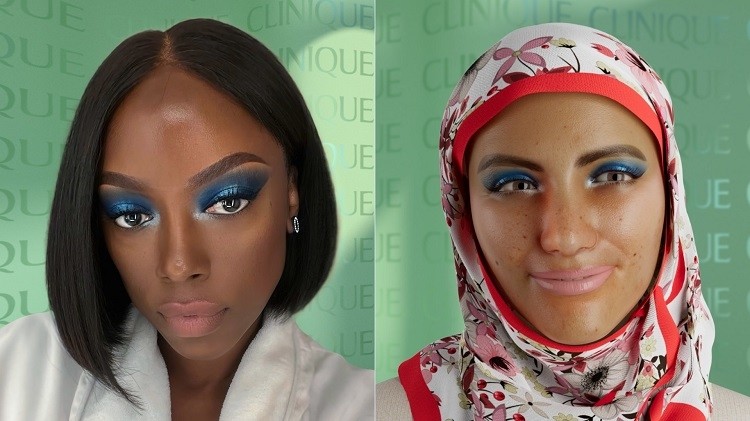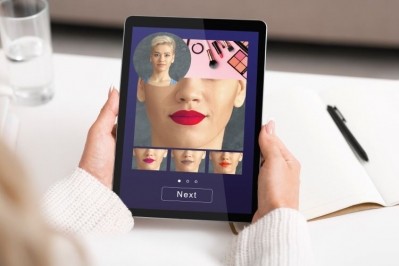Clinique to launch its first make-up NFT

The move will see Clinique enter into the metaverse – a term increasingly used in technology to describe the 3D nature of the internet – where the beauty brand aims to develop a better and more inclusive digital beauty sphere by improving accessibility and address the lack of representation in the digital world.
It is the first Estée Lauder brand to launch into the advanced technological space with the creation of its NFT campaign which seeks to “challenge unrealistic beauty standards and champion individuality”.
By joining forces with Daz 3D, which specialises in building NFT campaigns and NFP (non-fungible people) communities, and by collaborating with a team of make-up artists and creators, Clinique claims its latest beauty campaign “celebrates all beauty and highlights communities not currently represented in the digital world”.
Carolyn Dawkins, SVP of Global Marketing, Analytics and Online at Clinique, said: “From the beginning, Clinique has always been committed to developing products that deliver exceptional results and address all skin concerns whilst delivering better experiences for our consumers along the journey.”
“Our mission to be in the service of all skin means that we’re dedicated to increasing inclusivity everywhere our brand connects with consumers, and that commitment is no different in the Metaverse,” adds Dawkins.
“Our ground-breaking NFT collections, like Non-Fungible People and our partnership with Clinique, are breaking barriers and challenging the status quo,” said Jessica Rizzuto, SVP of eCommerce at Daz 3D.
“Over the past 20 years, Daz 3D has consistently created inclusive representation in the digital environment and is thrilled to continue this tradition with Clinique.”
Clinique hopes its Metaverse More Like Us campaign will further its efforts to drive optimism and build a fully-inclusive community that “directly addresses the lack of diverse avatars and the marginalisation that currently exists in the digital world”.
Developing inclusive NFT-based beauty
A group of leading make-up artists and creators from around the world, including Tess Daly and Sheika Daley, each curated two make-up looks to complete the More Like Us campaign’s six looks. Clinique states that the make-up creations were produced with diverse NFPs in mind to enable them to reflect all skin tones, face shapes and hairstyles.
As part of the campaign, the make-up artists and creators will use social media to share the inspiration behind their chosen make-up, their creative processes and social causes they are passionate about.
The rise of NFTs
NFTs have burst onto the financial and technology scene in recent years with art, music, food and beauty brands exploring their potential and appeal with an ever-avid digital audience. The unit of data is a representation of real-world objects such as beauty products, videos and in-game items—making them a popular way to connect beauty with gaming and to create social media hype.
Beauty and personal care brands have been exploring and utilising NFTs to connect and engage with loyal consumers and brand advocates by offering exclusive collections and collectables.

![LG Household & Healthcare is the latest beauty company to dabble in the NFT craze, but one expert is questioning the future of beauty NFTs when considering the grand scheme of the metaverse. [Getty Images]](https://www.cosmeticsdesign-europe.com/var/wrbm_gb_food_pharma/storage/images/_aliases/wrbm_medium/publications/cosmetics/cosmeticsdesign-asia.com/headlines/market-trends/beauty-nft-what-is-the-endgame-for-non-fungible-beauty-in-the-metaverse/13333129-1-eng-GB/Beauty-NFT-What-is-the-endgame-for-non-fungible-beauty-in-the-metaverse.jpg)
![The Estée Lauder Companies has redesigned its Clinique Clarifying Lotion 200ml bottles, manufacturing them with a smart moulding technology that enables 10-15% reduction in waste during processing [Image: The Estée Lauder Companies]](https://www.cosmeticsdesign-europe.com/var/wrbm_gb_food_pharma/storage/images/_aliases/wrbm_medium/publications/cosmetics/cosmeticsdesign-europe.com/article/2021/09/16/estee-lauder-to-launch-new-reduced-waste-clinique-bottles-using-moulding-tech/12826466-1-eng-GB/Estee-Lauder-to-launch-new-reduced-waste-Clinique-bottles-using-moulding-tech.jpg)






![Chinese study highlights mental health challenges in atopic dermatitis, emphasising holistic patient care. [Getty Images]](https://www.cosmeticsdesign-europe.com/var/wrbm_gb_food_pharma/storage/images/_aliases/wrbm_tiny/publications/cosmetics/cosmeticsdesign-asia.com/headlines/formulation-science/chinese-research-linking-atopic-dermatitis-to-mental-health-underscores-need-for-holistic-care/17040623-1-eng-GB/Chinese-research-linking-atopic-dermatitis-to-mental-health-underscores-need-for-holistic-care.jpg)








